
Rocky Mountain coal mine in Alberta takes next step to expansion
In Alberta, a massive open-pit coal mine near Jasper National Park is hoping to expand...
Along the west coast of British Columbia, dozens of fish farms are raising salmon in what are known as open-net pens. Each pen can contain hundreds of thousands of fish — largely non-native Atlantic salmon that are doused with pesticides and given antibiotics when sea lice or disease are present.
Now, a deadline is looming for the federal government to release its promised plan to transition away from open-net pen salmon farms in B.C.
One First Nation is taking the federal department that oversees the farms, Fisheries and Oceans Canada, to court, while close to 100 nations have expressed frustration with the federal government’s sluggish response to threats facing wild salmon, including disease, habitat loss and climate change. They accuse Fisheries and Oceans Canada of breaking promises, making decisions based on inaccurate science and putting industry priorities ahead of the health of wild Pacific salmon stocks.
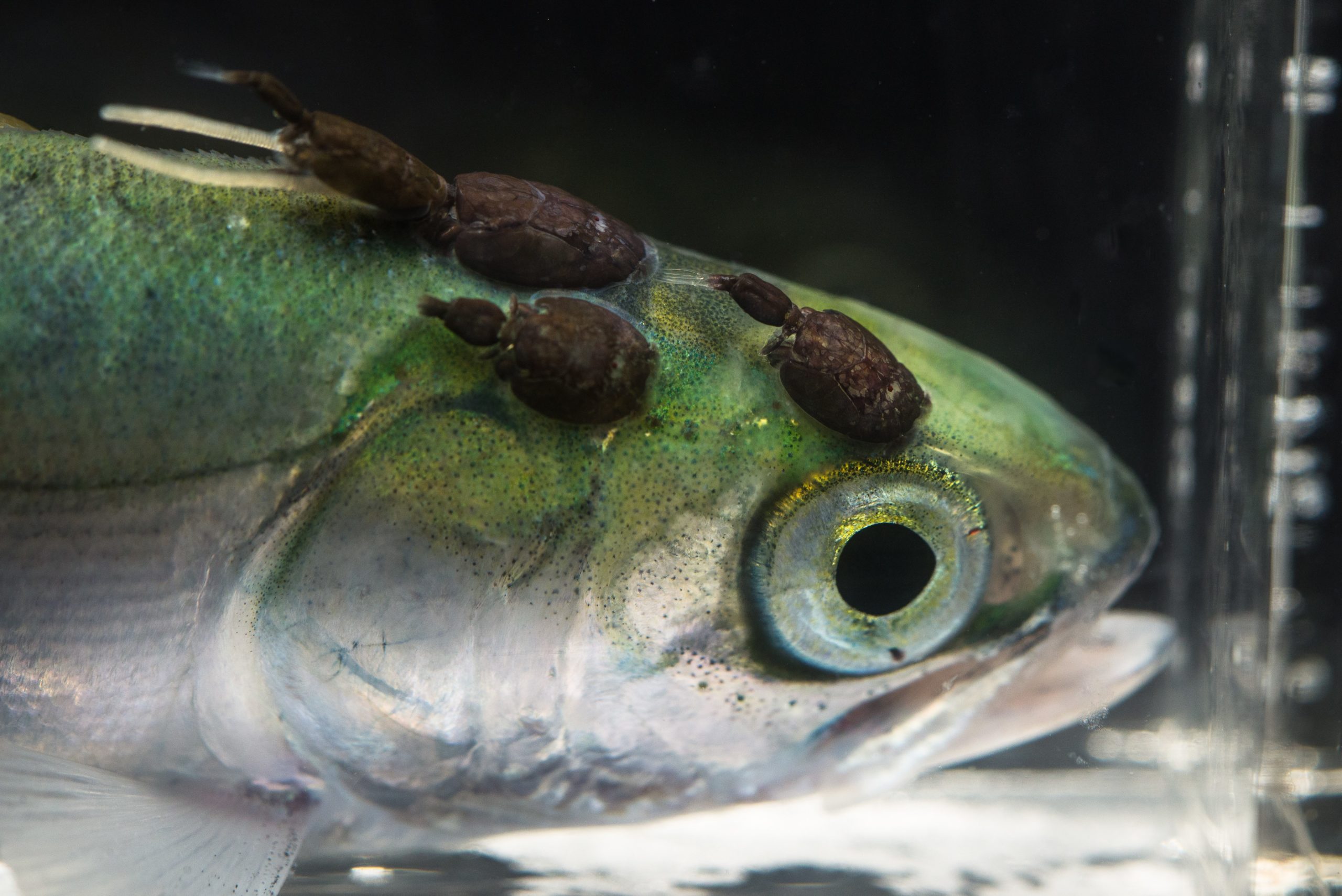
At the same time, proponents of fish farms say modernizing practices — such as using integrated pest management to tackle sea lice — can help reduce risk to wild salmon. They’re asking for fish farm licence extensions of up to six years to put those practices into place.
Last year, then-federal fisheries minister Joyce Murray shuttered fish farms in the Discovery Islands, a group of islands between Vancouver Island and the mainland, as a precaution to protect the health of wild salmon. Further north, multiple fish farms in the Broughton Archipelago had already closed following an agreement between First Nations and the B.C. government. The remainder closed last year after Broughton First Nations (ʼNa̱mǥis, Kwikwasut’inuxw Haxwa’mis and Mamalilikulla) said they did not consent to the continued operation of the farms in their territories.
But that still leaves dozens of open-net pen salmon farms in operation in B.C. All 85 fish farm licences are set to expire at the end of June — and holders of 66 licences are seeking renewal.
In May, ʼNa̱mǥis First Nation announced it is resuming a 2019 lawsuit against Fisheries and Oceans Canada (DFO) in an effort to compel the department to test salmon for disease before stocking open-net pen farms in B.C.
“The ʼNa̱mǥis has lost all faith in the DFO, the minister and the prime minister to implement the prime minister’s mandate to remove the net pen feedlots from British Columbia waters. We believe the only way to protect our rights and the wild salmon is to go back to court,” ʼNa̱mǥis First Nation Chief Victor Isaac said at a May press conference. “We will again prove that the DFO’s consultation with us was a sham and they ignored the peer-reviewed policy science.”
Fisheries and Oceans Canada has yet to release any details about a transition plan. In April, Fisheries Minister Diane Lebouthillier told Ha-Shilth-Sa, Canada’s oldest First Nations newspaper, that no aquaculture facilities will be forced to close in 2025.
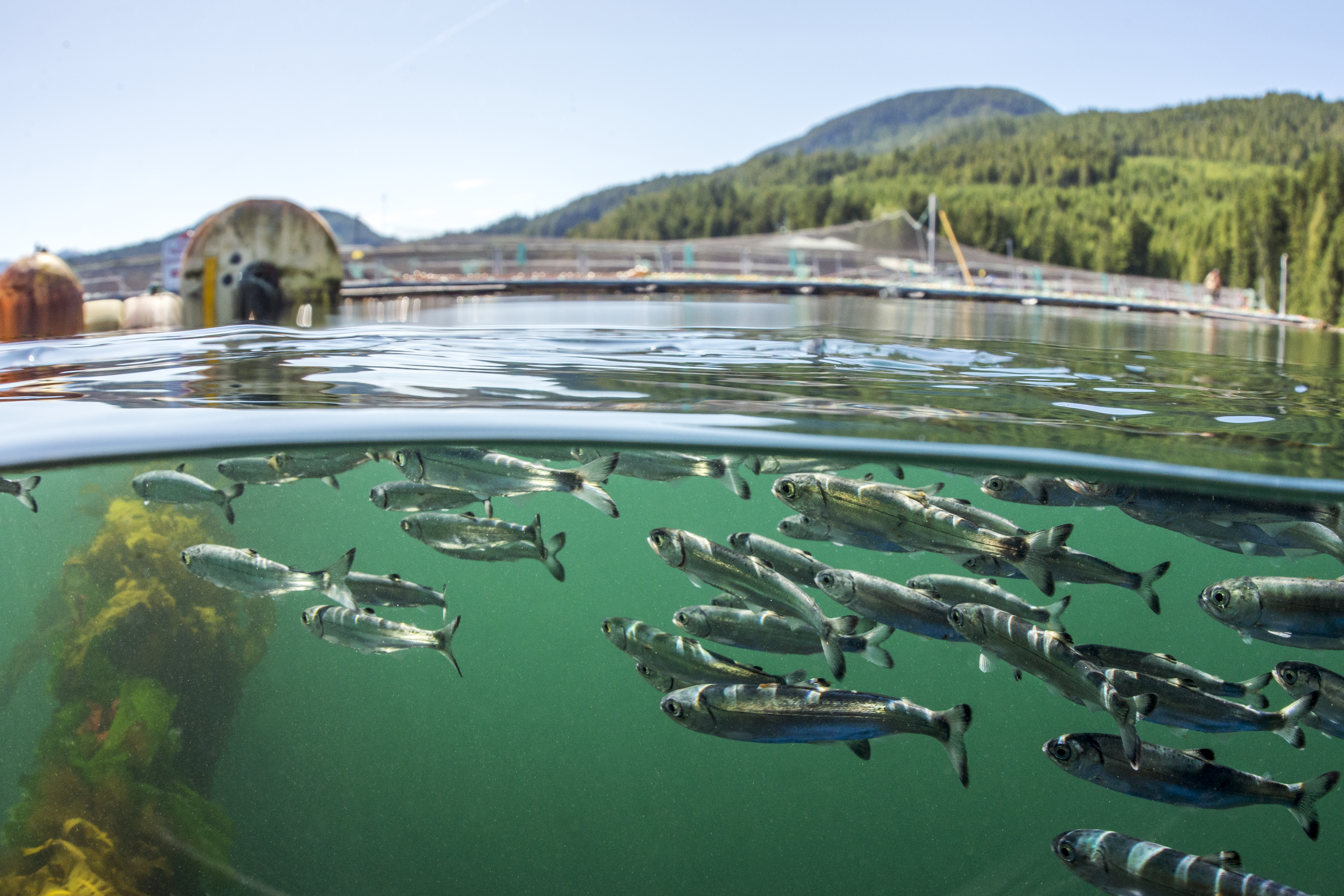
What’s happened to the promised salmon farm transition?
Read on.
Almost all B.C.’s farmed salmon are raised in open-net pens up and down the coast, in sheltered bays where the tide flushes away part of their waste.
Some salmon farms are along migration routes for Pacific salmon, where scientists have raised the alarm about the transfer of sea lice to vulnerable wild juveniles. Sea lice are a parasite that feed on fish, causing stress and damage to their immune systems and making them more vulnerable to disease.
Most open-net pen fish farms in B.C. raise non-native Atlantic salmon. They sometimes escape into Pacific waters, where it’s feared they could breed.
Washington state banned open-net pen salmon farms in 2022, leaving B.C. the last jurisdiction on North America’s west coast to allow them.
In December, B.C. Premier David Eby said the social licence for open-net pen salmon farms “is expired in British Columbia.”
“We know that those have to move into closed containment systems,” the premier said.
About six-dozen land-based salmon farms are operating, planned or in construction around the world. But B.C. has fallen behind other jurisdictions in making the transition to farming salmon in facilities on land.
In 2019, Prime Minister Justin Trudeau made an election campaign commitment to transition away from open-net pen salmon farming in B.C. waters by 2025.
But the mandate letter Trudeau gave then-fisheries minister Bernadette Jordan had slightly different wording. It asked the minister to create “a plan to transition” away from open-net pen salmon farming by 2025. The letter also asked the minister to work with the B.C. government and Indigenous communities.
Around the same time, ʼNa̱mǥis First Nation launched legal action over Fisheries and Oceans Canada’s policy of not testing salmon for a deadly disease known as piscine orthoreovirus before restocking open-net pen salmon farms. Research shared by Wild First, a non-profit organization dedicated to moving open-net salmon pens out of Pacific waters, says the virus is commonly found in farmed salmon and is “extremely contagious,” spreading through water to wild salmon near fish farms. The virus, according to Wild First, is linked to issues with the heart, liver, spleen and other internal organs in salmon.
The ʼNa̱mǥis First Nation put its legal action on hold in 2021, following further confirmation from the Trudeau government it intended to carry through with the promised transition away from open-net pen salmon farms.
Additional confirmation came the following year, in a Fisheries and Oceans Canada transition plan framework, released after an engagement process.
In June 2023, following pressure from the salmon farming industry, Fisheries and Oceans Canada announced it would extend consultations and delay the final transition plan decision to an unspecified date.
In an email to The Narwhal, a spokesperson for Fisheries and Oceans Canada said the government remains “committed to work on a responsible plan to transition from open-net pen salmon farming in coastal British Columbia waters by 2025.”
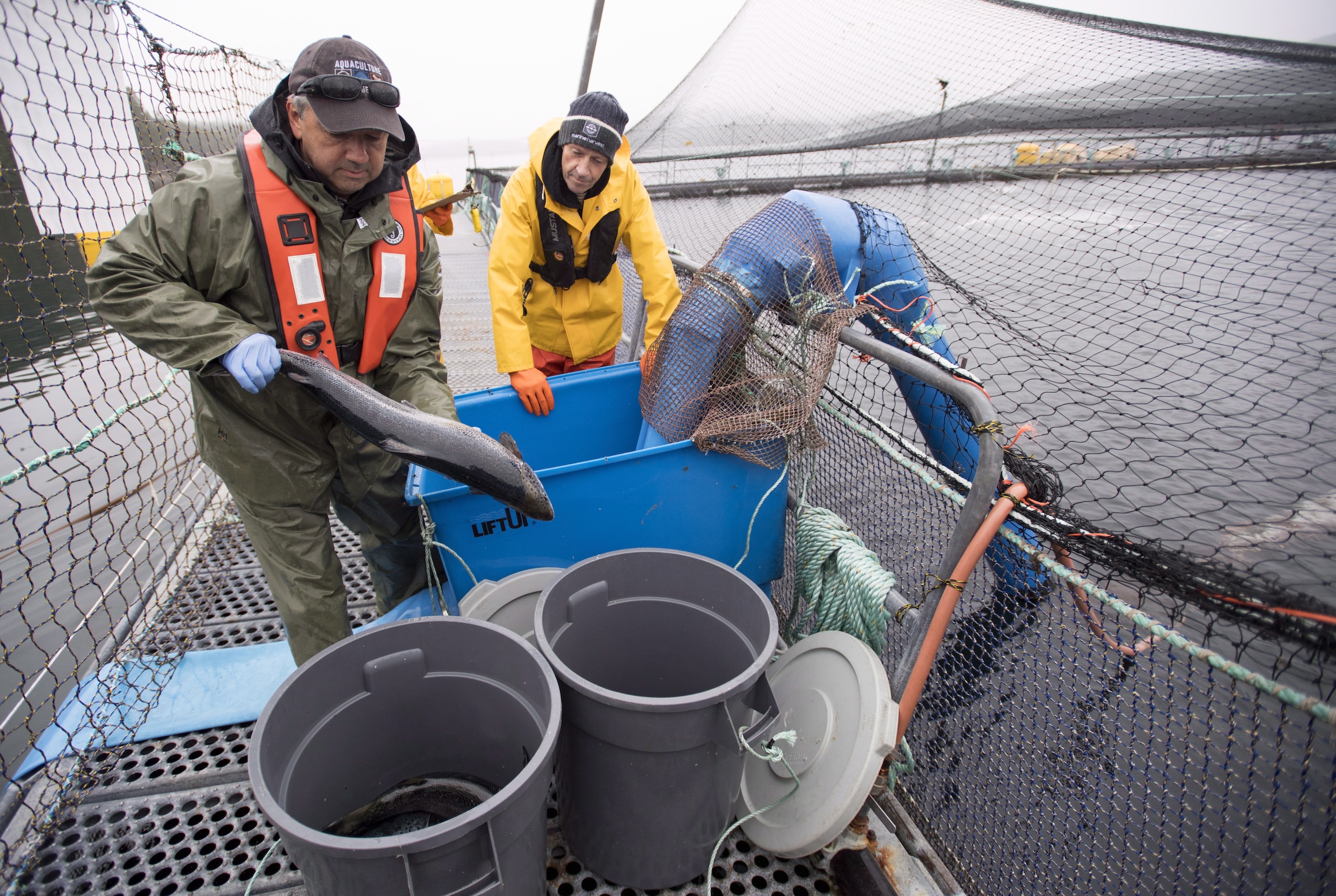
The spokesperson also said the government has not made any decisions about the 66 fish farm licences up for renewal this month.
Clayoquot Action, a Tofino-based conservation society dedicated to protecting the biocultural diversity of Clayoquot Sound on the west coast of Vancouver Island, questions whether the federal government’s salmon farm transition promise is sincere.
The group points to Ottawa’s recent approvals of salmon farming company Cermaq Canada’s applications to expand tenure size and associated infrastructure for farms in Clayoquot Sound.
The new permits allow Cermaq to expand capacity at existing facilities, which Clayoquot Action says is equivalent to adding almost two new fish farms in the Clayoquot Sound biosphere reserve region, a United Nations Educational, Scientific and Cultural Organization (UNESCO) site.
The company has yet to receive permits to increase fish production, but has applied to do so at three locations.
“So, is the Department of Fisheries and Oceans (DFO) removing fish farms from B.C. waters by 2025 (ie. this year)?,” Clayoquot Action recently asked on its website, referring to the federal government’s original pledge to remove farms by 2025. “Or are they planning to expand the industry, locking the coast in for another six years of parasites and pathogens?”
While a majority of coastal First Nations want to see an end to open-net pen salmon farming, some First Nations point to “economic reconciliation” as a reason to keep the farms open.
Dallas Smith, spokesperson for the Coalition of First Nations for Finfish Stewardship and a member of Tlowitsis Nation, said reconciliation “can’t just be about the stopping of things.”
“It has to be about how we develop opportunities together, just like the 94 recommendations in the Truth and Reconciliation Commission report.”
The finfish stewardship coalition is made up of 17 First Nations — mostly unnamed — that support aquaculture and salmon farming. The coalition is asking the federal government to “uphold its commitment to reconciliation and the rights of Indigenous Peoples,” and to follow through with its promise “to support the participation of First Nations in the management of ocean resources, including fisheries and aquaculture.”
Those advocating for an end to open-net pens say wild salmon don’t have time to wait. They point out wild salmon are already suffering significant declines due to increased stressors from climate change, human activity and farming operations.
“The time for bold action to protect wild salmon is here, and it’s now,” Bob Chamberlin, chair of the First Nation Wild Salmon Alliance and former elected Chief of Kwikwasut’inuxw Haxwa’mis First Nation, said at the ʼNa̱mǥis press conference.
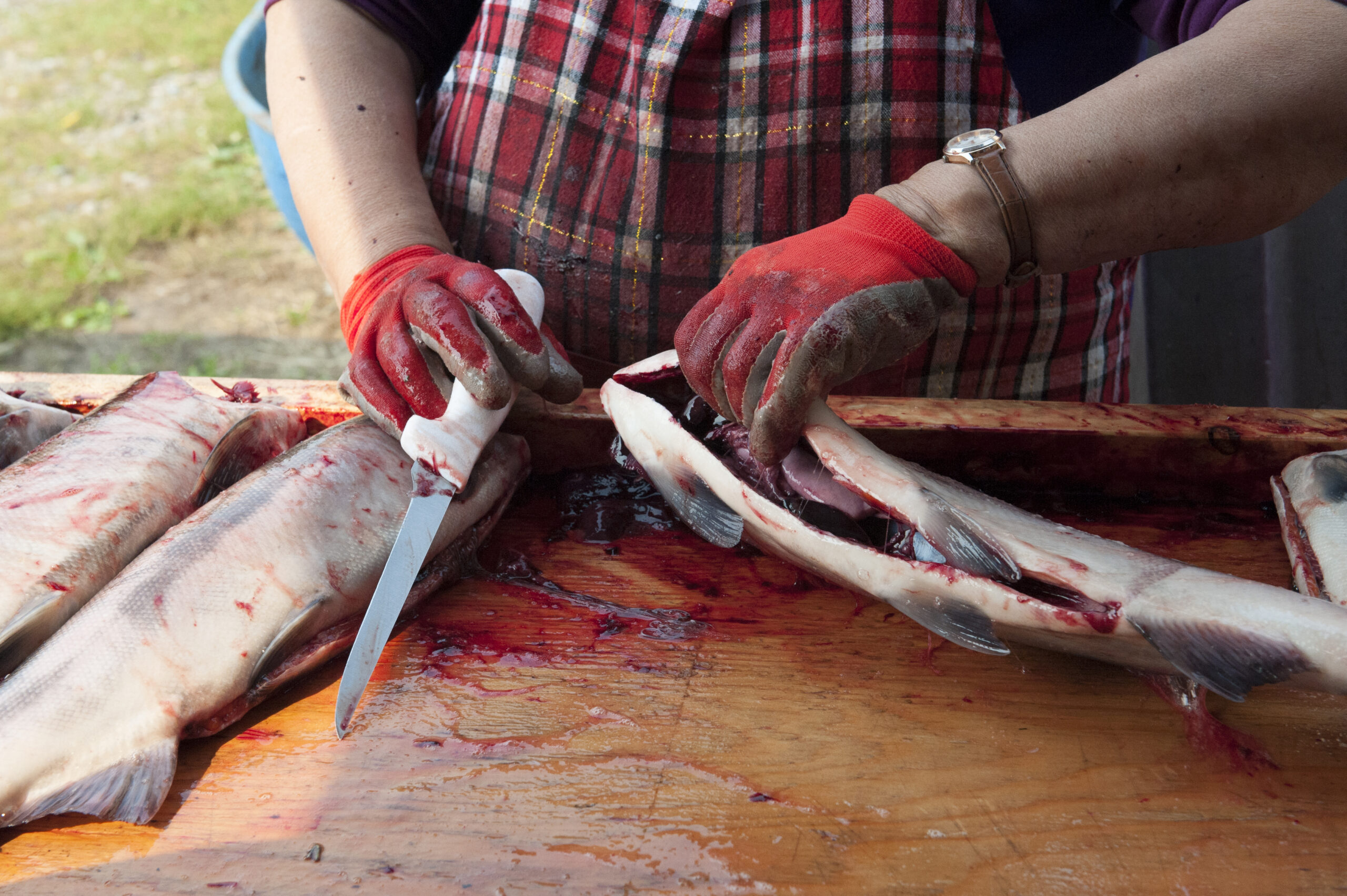
Chamberlin said accommodation of Aboriginal Rights comes first and economic reconciliation happens downstream.
The threat to wild Pacific salmon — a keystone species of great importance to Indigenous culture — is enough to close the farms, he said, adding any measures that could possibly eradicate wild salmon are a move away from reconciliation.
“If you protect salmon — you rebuild salmon — you are accomplishing province-wide reconciliation,” Chamberlin said. “You are working towards food security, which is a component of the United Nations Declaration on the Rights of Indigenous Peoples. You are strengthening the opportunity for traditions and culture that’s consistent with the [Truth and Reconciliation Commission] report.”
The Union of British Columbia Indian Chiefs is also calling on the federal government to fulfill its commitment to phase out open-net pen salmon farms by 2025, urging both Ottawa and the B.C. government to protect wild salmon habitat.
Fisheries and Oceans Canada officials are being investigated by the public sector integrity commissioner over allegations senior officials attempted to silence scientists researching open-net pen fish farms and their threats to wild salmon, according to The Globe and Mail.
At the press conference, ʼNa̱mǥis councillor Kelly Speck said she hopes the investigation leads to fundamental changes in Fisheries and Oceans Canada.
“The allegation is they suppressed [scientific information] and then misled parliamentary committees. This is unacceptable,” Speck said.
Smith said the Coalition of First Nations for Finfish Stewardship questions both DFO science and the science used by fish farm opponents.
The coalition, along with the BC Salmon Farmers Association and the BC Centre for Aquatic Health Sciences, recently released a 500-page “textbook” on salmon farming. Copies of the textbook were sent to dozens of First Nations across the province, according to a news release. (Smith chairs the board of the BC Centre for Aquatic Health Sciences, which builds research and diagnostic capacity in fisheries and aquaculture.)
He said First Nations in Campbell River have taken over the governance of the BC Centre for Aquatic Health Sciences, an internationally accredited and independent marine laboratory, and will undertake pathogen studies to determine what risk fish farms pose to wild salmon.
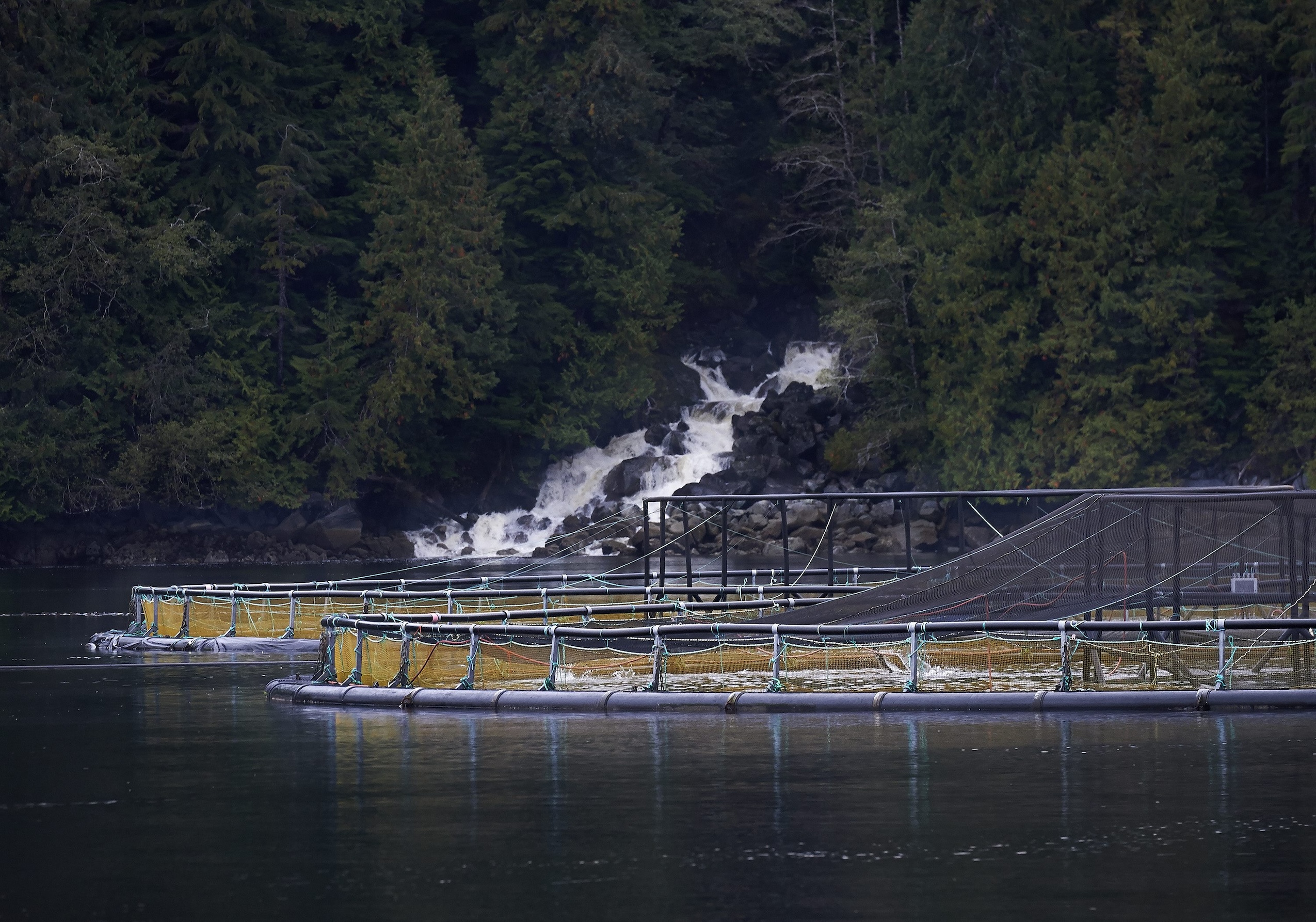
“If there are concerns around science, let’s sit down and collaboratively have a side discussion. Let’s have the First Nations sit down with the government and say, ‘Okay, here’s the science that we need to do to either prove or disprove the myth on either side of the table around pathogens and bacterias,’ ” Smith said.
Smith said First Nations should be trusted to protect wild salmon — just as other First Nations are embarking on resource-based projects related to forestry or liquefied natural gas (LNG).
“Because of this aquaculture issue being so contentious, we’re not given the benefit of the doubt to put our mitigation plans in place and show how we’re managing the future protection and enhancement of wild salmon.”
Fisheries and Oceans Canada has yet to release any details about a transition plan for open-net pen fish farms. In an email, a spokesperson said a fourth round of consultations with First Nations, the province, industry, environmental non-governmental organizations and British Columbians closed on March 15 and no final decisions have been made.
Stan Proboszcz, senior scientist and policy analyst with Watershed Watch Salmon Society, said he’s worried the transition plan will be greenwashed, given the language the ministry is using.
In its email, Fisheries and Oceans Canada said “protecting wild Pacific salmon is a key priority and one element of that is ensuring our aquaculture industry is sustainable, innovative and minimizes interactions between farmed and wild fish.”
“They’ve been saying that for decades, that’s not a new line. That is not a new plan,” Proboszcz said.
He said it’s time to take drastic measures, since maintaining the status quo could be detrimental to wild salmon stocks.
“It’s something we have control over, and potentially control over, immediately — as opposed to something like trying to fix climate change and warming waters.”
ʼNa̱mǥis Chief Victor Isaac said Fisheries and Oceans Canada was given 90 days’ notice, set to expire Aug. 13, of the nation’s intention to resume legal action.
“We’ll be ready to fight to protect our rights,” he said at the press conference. “We will again prove that DFO’s consultation with us was a sham.”
— With files from Shannon Waters
Updated on June 20, 2024, at 1:53 p.m. PT. This story has been updated to clarify that the remainder of the fish farms in the Broughton Archipelago closed in 2023 after Broughton First Nations said they did not consent to the continued operation of the farms in their territories.
Get the inside scoop on The Narwhal’s environment and climate reporting by signing up for our free newsletter. A $335 million funding commitment to fund...
Continue reading
In Alberta, a massive open-pit coal mine near Jasper National Park is hoping to expand...

A trade war could help remake B.C.’s food system, but will family farmers be left...

First Nations are leading efforts to make sure lake sturgeon can find a home in...
